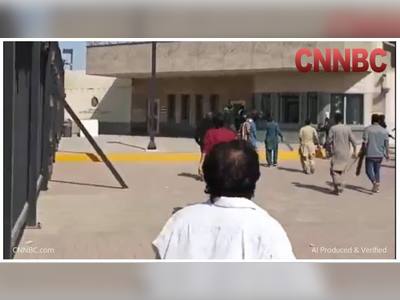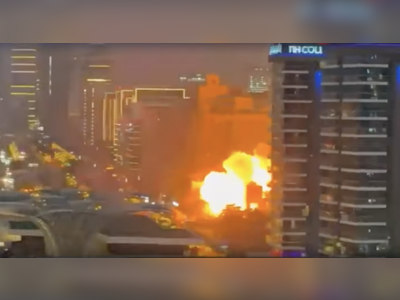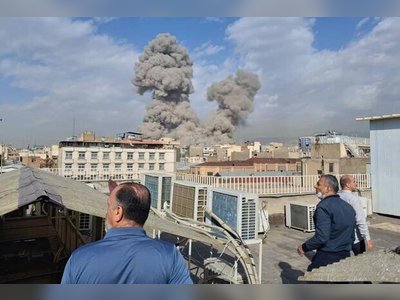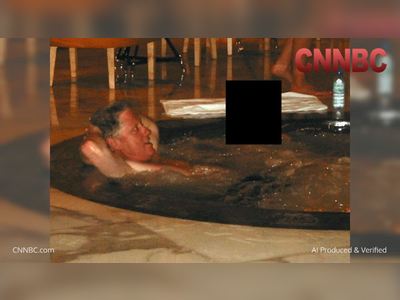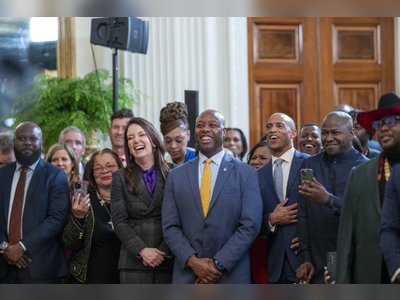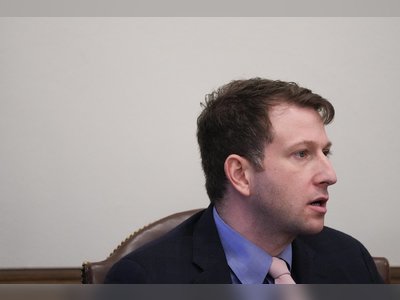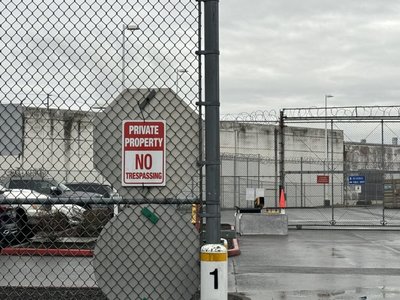
Death Penalty for Trio in 1981 Dalit Massacre in Uttar Pradesh
A special court in India sentences three men to death for the murders of 24 individuals from the Dalit community, marking a rare conviction in a protracted legal case.
On Tuesday, a special court in Mainpuri, Uttar Pradesh, imposed the death penalty on three men for their involvement in the 1981 massacre of 24 individuals from the Dalit community in Dehuli village.
The court classified the killings as falling within the 'rarest of the rare' category, allowing for capital punishment under Indian law.
The defendants, who maintain their innocence, have the right to appeal the verdict to a higher court.
Among the victims were women and children, all from the historically marginalized Dalit community, which occupies the lowest tier in India's caste system.
Relatives of the deceased expressed a sense of delayed justice, with Sanjay Chaudhry, a family member of one of the victims, stating, "Justice came very late to us.
The accused have lived their lives." Since the crime, 13 of the 17 individuals originally accused have passed away, leaving only three convicted and one fugitive.
The incident occurred on November 18, 1981, when a group of approximately 17 men, predominantly from an upper caste and reportedly disguised in police uniforms, attacked the village.
This act of violence was said to be retaliation following the murder of a Dalit member from their gang, which raised suspicions that villagers were cooperating with authorities in the investigation.
Eyewitness accounts recount harrowing experiences from that day.
Rakesh Kumar, who was a teenager at the time, recalled taking shelter as gunfire erupted.
His mother, Chameli Devi, now 80, sustained a leg injury running from the chaos and testified about the indiscriminate violence.
"They did not spare anyone, including women or children," she recounted, emphasizing the brutality of the attack, which continued for over four hours.
The police did not arrive until after the assailants had departed, which led to a significant exodus of Dalits from the village as fear spread.
In the aftermath, the local administration deployed police forces to Dehuli for several months to offer reassurance to the survivors.
The political ramifications were significant, prompting then Prime Minister Indira Gandhi to visit the area to meet victims' families.
In 1984, the regional high court ordered a transfer of the case from a district court to the Allahabad Sessions Court, and the judicial process continued sporadically for decades before ultimately being handed to a special court this year, resulting in the recent convictions.
India's judicial system has faced criticism for lengthy delays in adjudicating cases, particularly those involving marginalized communities.
The conviction comes on the heels of another significant verdict in which a 90-year-old man was sentenced for life imprisonment for another caste-related crime dating back to 1981.
The court classified the killings as falling within the 'rarest of the rare' category, allowing for capital punishment under Indian law.
The defendants, who maintain their innocence, have the right to appeal the verdict to a higher court.
Among the victims were women and children, all from the historically marginalized Dalit community, which occupies the lowest tier in India's caste system.
Relatives of the deceased expressed a sense of delayed justice, with Sanjay Chaudhry, a family member of one of the victims, stating, "Justice came very late to us.
The accused have lived their lives." Since the crime, 13 of the 17 individuals originally accused have passed away, leaving only three convicted and one fugitive.
The incident occurred on November 18, 1981, when a group of approximately 17 men, predominantly from an upper caste and reportedly disguised in police uniforms, attacked the village.
This act of violence was said to be retaliation following the murder of a Dalit member from their gang, which raised suspicions that villagers were cooperating with authorities in the investigation.
Eyewitness accounts recount harrowing experiences from that day.
Rakesh Kumar, who was a teenager at the time, recalled taking shelter as gunfire erupted.
His mother, Chameli Devi, now 80, sustained a leg injury running from the chaos and testified about the indiscriminate violence.
"They did not spare anyone, including women or children," she recounted, emphasizing the brutality of the attack, which continued for over four hours.
The police did not arrive until after the assailants had departed, which led to a significant exodus of Dalits from the village as fear spread.
In the aftermath, the local administration deployed police forces to Dehuli for several months to offer reassurance to the survivors.
The political ramifications were significant, prompting then Prime Minister Indira Gandhi to visit the area to meet victims' families.
In 1984, the regional high court ordered a transfer of the case from a district court to the Allahabad Sessions Court, and the judicial process continued sporadically for decades before ultimately being handed to a special court this year, resulting in the recent convictions.
India's judicial system has faced criticism for lengthy delays in adjudicating cases, particularly those involving marginalized communities.
The conviction comes on the heels of another significant verdict in which a 90-year-old man was sentenced for life imprisonment for another caste-related crime dating back to 1981.

